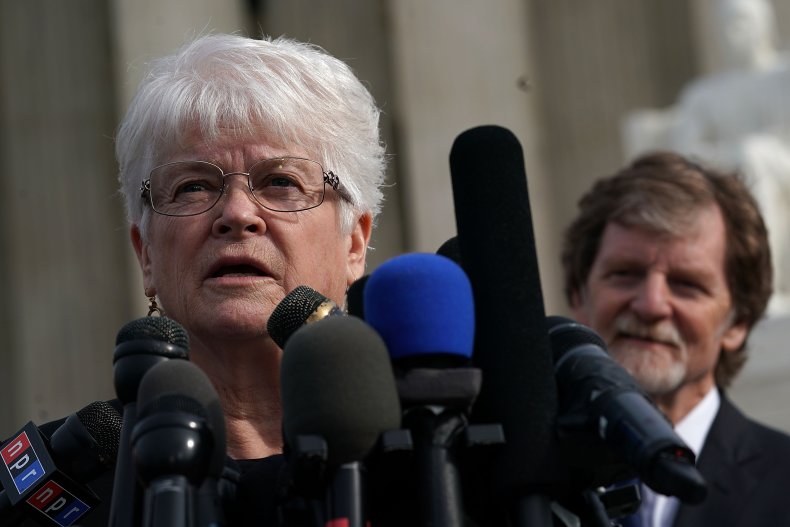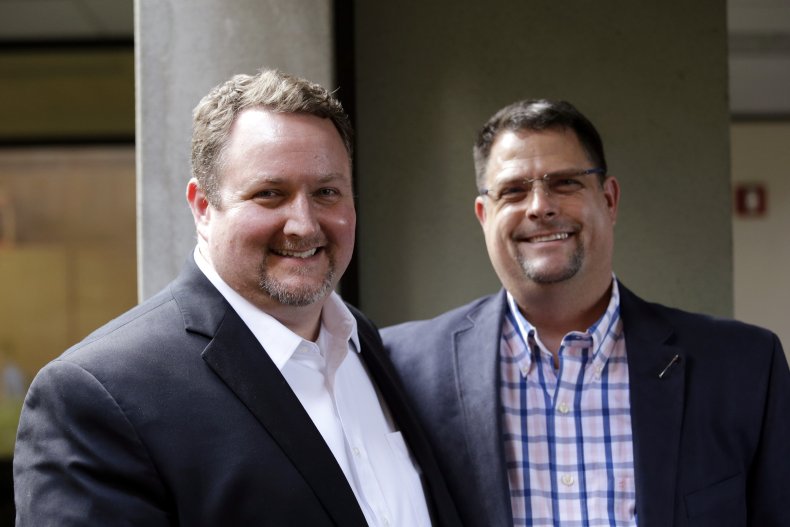Florist Settles With Same-Sex Couple After Wedding Job Refused, Wishes Them 'Very Best'
The eight-year legal battle between a Washington state florist and the same-sex couple she refused to service has come to an end.
Barronelle Stutzman of Arlene's Flowers announced that she had paid $5,000 to Robert Ingersoll and Curt Freed. She also wished them "the very best" moving forward. Ingersoll had been a customer of Stutzman's for almost a decade before she refused to make floral arrangements for his and Freed's wedding.
The agreement was reached between the Alliance Defending Freedom and the American Civil Liberties Union, representing the parties in this case. It will allow Stutzman to "preserve her conscience," as she will not have to act against her Southern Baptist religious beliefs. According to the Alliance Defending Freedom release, she will also avoid paying "potentially ruinous attorneys' fees," according to the Alliance Defending Freedom release.
The ACLU brought the lawsuit against Stutzman in 2013, citing that her refusal to take the job was discriminatory. Washington Attorney General Bob Ferguson also filed a separate lawsuit claiming that she violated the state's Consumer Protection Act. The case went through multiple reviews through the Superior Court, the state Supreme Court, and finally, the U.S. Supreme Court. All courts sided in favor of Ingersoll and Freed.
The couple plan to donate the settlement to a local PFLAG chapter. Meanwhile, Stutzman is looking to retire.
"I am willing to turn the legal struggle for freedom over to others," she said in her letter announcing the settlement. "At age 77, it's time to retire and give my business to someone else."
For more reporting from the Associated Press, see below:

The settlement leaves in place two unanimous decisions by the Washington state Supreme Court that the Constitution does not grant a license to discriminate against LGBTQ people, the ACLU of Washington said.
"We took on this case because we were worried about the harm being turned away would cause LGBTQ people," Freed and Ingersoll said Thursday in a statement. "We are glad the Washington Supreme Court rulings will stay in place to ensure that same-sex couples are protected from discrimination and should be served by businesses like anyone else."
A Benton County Superior Court judge in 2015 ruled that Stutzman must pay $1 in attorneys' fees and costs to the state, along with a $1,000 civil penalty, for discriminating against the couple. That judgment still stands.
"We are pleased to hear that Arlene's Flowers and Barronelle Stutzman have reached a settlement agreement with the couple they refused to serve," Ferguson said in an email to the Tri-City Herald.
The country's highest court vacated Washington state's previous ruling and sent it back to the lower court in 2018 for another review. The Washington Supreme Court in 2019 ruled unanimously that state courts did not act with animosity toward religion when they ruled Stutzman broke the state's anti-discrimination laws by refusing on religious grounds to provide wedding flowers.
Stutzman and Alliance Defending Freedom—in their second attempt to get the case before the U.S. Supreme Court—filed a petition for review in September 2019.
The Supreme Court in July declined to take up the case. Stutzman responded with a petition for rehearing, but she will withdraw it as part of her settlement.


